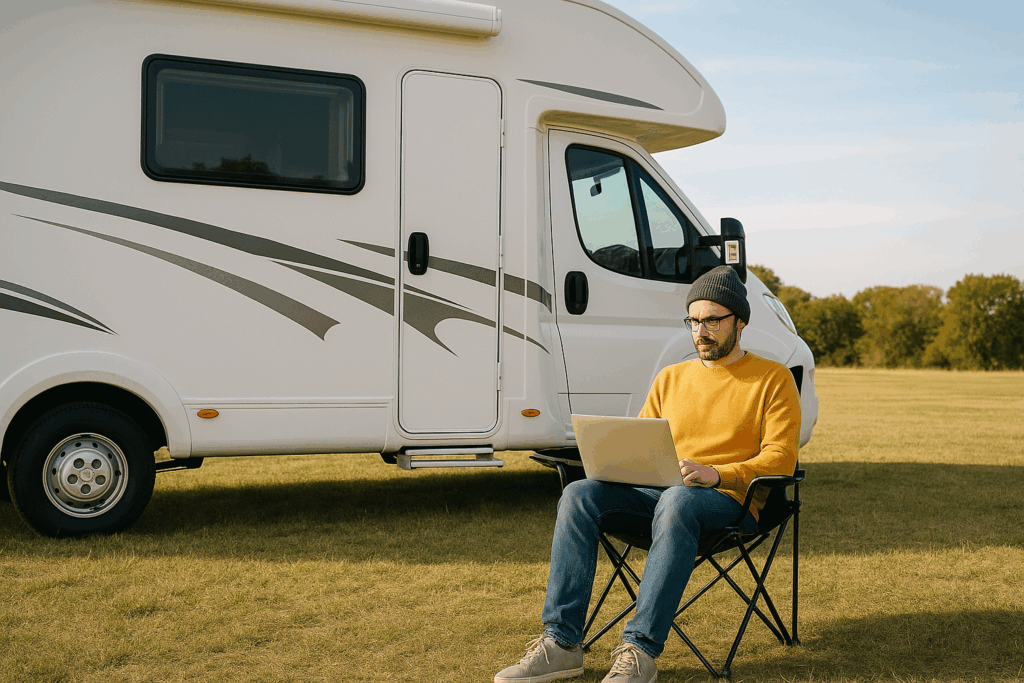The number of people working remotely has climbed dramatically in recent years, and this trend shows no signs of slowing. With flexibility becoming a cornerstone of modern employment, more individuals are choosing lifestyles that prioritise mobility and nature over fixed locations and cityscapes. One lifestyle gaining attention is full-time living in RV resorts, a path that merges professional productivity with personal freedom.
Escaping the Cost of City Living
Why are so many remote workers trading traditional homes for rolling wheels and lakeside campgrounds? Several factors contribute to this choice, not least of which is the high cost of urban living. Rising rent prices, especially in major cities, have led many to question whether their physical surroundings are worth the financial burden. When working from a laptop is just as viable beside a pine forest or coastal bay, the appeal of office buildings and downtown apartments starts to fade.
The financial savings can be significant. Without large rent or mortgage payments, individuals often find they can live more comfortably, with fewer expenses weighing down their monthly budget. Insurance, utilities, and even groceries may cost less when mobility encourages simpler, more intentional living.
Reimagining Quality of Life
Another key factor is the quality of life. Many RV resorts offer amenities that rival or surpass what’s found in urban apartment complexes. High-speed Wi-Fi, quiet work-friendly environments, recreational facilities, community events, and easy access to natural settings all combine to create an environment well-suited to both work and rest. The ability to take a conference call in the morning and kayak in the afternoon is no longer just a fantasy for remote professionals but a daily reality.
A professional web designer recently shared how her mental clarity improved drastically after leaving her apartment in Phoenix for a year of full-time RV living. With fewer distractions and more access to the outdoors, she found it easier to focus on tasks, meet client deadlines, and avoid burnout.
Gaining Time and Personal Space
For some, the appeal lies in the control they regain over their time and space. Commuting, once a daily grind, becomes irrelevant. Days stretch longer, not because of extended work hours, but because they begin without a bumper-to-bumper delay. This reclaimed time is often used for hobbies, family, or exploration, adding layers of richness to daily routines that traditional setups seldom offer.
A couple who run a digital marketing agency out of their fifth-wheel RV explained that eliminating their commutes allowed them to spend more time with their children and take midweek breaks to explore nearby trails or lakes. These moments, they noted, improved their overall well-being and strengthened family bonds.
A Lifestyle That Sticks
Is it a realistic long-term choice? Many are proving it can be. Stories abound of individuals who initially planned a short escape from their lease and found themselves years later still living from an RV. One programmer based out of Montana shared how an initial plan for a three-month RV trip evolved into a full-time lifestyle after discovering that his productivity improved significantly when surrounded by nature and free from urban noise.
Some remote workers even report that their clients or employers never knew their work address had changed. As long as the work gets done on time and communication is consistent, location becomes a background detail rather than a barrier.
Facing Trade-Offs with Confidence
There are, of course, trade-offs. Space is limited, and community interaction, though often strong within RV parks, requires a willingness to adapt to new social dynamics. Internet service, while improving in many resorts, can still vary in reliability depending on geography. But for many, these adjustments are minor compared to the advantages of location independence, reduced living expenses, and the peace of mind that comes from living closer to nature.
Even tasks like laundry or meal prep, which may require more planning in an RV, become part of a slower-paced rhythm that many find refreshing. In some cases, the lifestyle even inspires better routines around health, sleep, and screen time.
The Family Dimension
Families, too, are joining the movement. Remote schooling has enabled parents to take children on the road while maintaining educational standards. Many RV resorts are recognising this shift and tailoring services to accommodate younger residents, offering family-friendly amenities and structured activities to support both schooling and recreation.
Some resorts host nature walks, crafts sessions, or group games, offering kids social opportunities and screen-free engagement. Parents report that learning on the move -visiting museums, nature reserves, or historic sites – can enrich their children’s understanding in ways that a textbook sometimes can’t.
Adapting to a New Kind of Guest
The broader tourism and real estate sectors are also taking note. Some RV parks are upgrading their infrastructure to cater specifically to full-time remote workers, installing coworking spaces, enhancing bandwidth capabilities, and designing quiet zones for virtual meetings. These improvements are not just about comfort- they reflect an understanding that the line between vacation and vocation is increasingly blurred.
Resorts that once focused primarily on weekenders or retirees are now looking at longer-term stay packages, seasonal discounts, and digital concierge services. Some even coordinate community potlucks or professional networking events, transforming what might be a solitary existence into one of shared purpose and connection.
A Redefined Role for RV Resorts
RV resorts, once seen mainly as transient stops for retirees or short-term holidaymakers, are gradually being redefined as stable living options for professionals. With telework now mainstream, the demand for dynamic, affordable, and inspiring workspaces has never been higher. These parks provide not just a roof and a plug, but a foundation for a lifestyle that balances work obligations with environmental serenity.
The rise of this trend also speaks to deeper shifts in values. For many, the freedom to move, to spend more time outdoors, and to engage with local communities offers a form of wealth that isn’t reflected in a bank account. It’s about living intentionally and choosing surroundings that support health, creativity, and connection.
Why Lake LaCroix RV Resort Fits the Remote Lifestyle
Among the many resorts welcoming this new wave of residents, Lake LaCroix RV Resort stands out as a thoughtful option for remote workers seeking stability without sacrificing scenery. Located in a peaceful natural setting, it offers essential work-friendly amenities, including Wi-Fi internet, ample space for long-term stays, and a welcoming community atmosphere. Its blend of convenience, calm, and connectivity makes it a solid choice for those rethinking how and where they live and work.
With its proximity to coastal recreation and year-round accessibility, the resort suits remote professionals who prefer mild climates, family-friendly settings, and quiet spaces to work. The onsite staff help maintain a respectful environment, ensuring that those balancing work and relaxation can do so with ease.
Final Thoughts
As the lines between professional and personal spaces continue to fade, more individuals are asking: if you can work from anywhere, why not work from somewhere beautiful, quiet, and community-minded? For a growing number of remote professionals, RV resorts are no longer just stops along the way- they are the destination.


